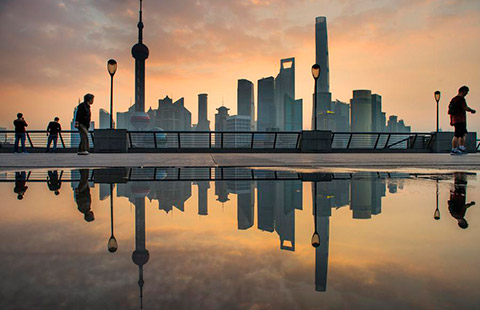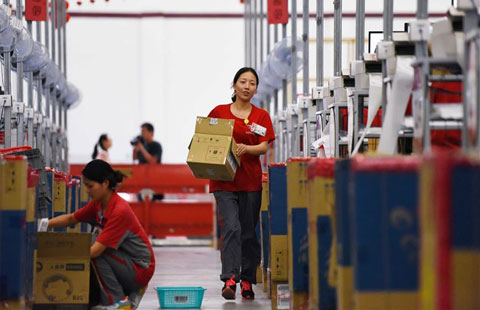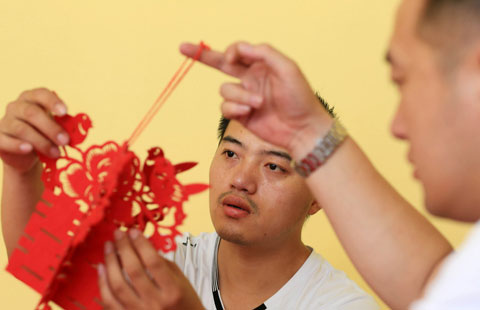More TV operators needed for HK creative industry
By Violetta Yau in Hong Kong (China Daily) Updated: 2012-11-16 11:29Finally, beleaguered ATV has put on its most stunning and farcical show ever through all its broadcasting history last Sunday. Kicking off the station's protest against the government's plan to issue new free-to-air TV licenses, its major investor Wong Ching, along with Miss Asia candidates and other artists, staged a 90-minute live show featuring a gangnam-style horse dance made popular by Korean entertainer Psy, outside the government headquarters.
This super-creative idea in itself is enough to arouse excitement among listeners, let alone how it left viewers flabbergasted. One cannot help but sigh, if only ATV had come up with this kind of creativity a long time ago and put it in a rightful place, it would not have had to put up a desperate struggle for survival as it must now.
Unfortunately, while Psy's unique horse dance attracted millions of hits on YouTube, ATV's unprecedented live show has only drawn fire from viewers who have complained to the Communications Authority, flooding the regulatory body with over 2,000 complaints in just two days.
The complaints mainly concern the accusations that ATV abused public airwaves to promote its own interests and that the live broadcast had violated the competition provisions of the Broadcasting Ordinance, by seeking to impede competition in the TV market. The station was also accused of making a false statement when it claimed to enjoy a 40 percent share in overall viewership.
As a TV station that struggled hard for decades to keep its head above the water but ended up with a pool of stagnant water unable to draw viewers, ATV has every right and justification to oppose the issuance of more free-to-air TV licenses. But it is another thing if it abuses public resources, namely public airwaves, to further its commercial interests. Indeed, there are many ways for the station to state its grievances and fight for justice through judicial reviews or other protests, but not by occupying airtime and forcing viewers to watch its protest, which it disguised as a show.
Indeed, the fear expressed by ATV executive director Shing Pan-yu rings true. The issue of more free-to-air TV licenses may lead to the collapse of ATV. After all, the station has suffered a continued changeover of ownership, management crises and persistent setbacks stemming from a disastrously-low viewership. If more competitors are allowed to enter the city's free-television arena, ATV may really need to call it quits.
However, even without the issue of more TV licenses, ATV's days are still numbered, simply by the fact of its trash and rehashed productions over the years, which signal a death sentence for the embattled station. Licensing conditions have required the two free-to-air TV operators, ATV and TVB, to broadcast a minimum amount of locally-produced programs. But what we see from ATV are only dramas imported from overseas, especially South Korea without any local productions. It is even more ironic that because of its heavy reliance on imported dramas from South Korea, the local station recently was commended by the South Korean government for its dedicated efforts to promote the Korean wave in Hong Kong.
Worse still, ATV simply replays old programs and dramas produced ages ago over and over again, to fulfill its licensing requirement of broadcasting a minimum amount of locally-produced programs.
If ATV continues to stick to this lame and miserly approach, it has only itself to blame for stifling its own existence. On the positive side, the introduction of more market competition may give an impetus to the station to be more pro-active in fighting for good viewership and making good programs.
For the sake of the public interest as well as the development of the creative industry, the government should issue additional free-TV licenses as soon as possible. After waiting for almost three years for the government to give a final decision, not only the three license bidders, namely City Telecom, PCCW and i-Cable, but also the public are getting really impatient.
We all want to have more choices of free TV programs without having to endure the rotten programs of TVB, which has dictated our choices for decades because of its grip on the city's free-to-air duopoly. Only through the introduction of new blood and competition can the city's stagnant TV and creative industry thrive with sustainable growth and restore its glorious days as the Asian Hollywood.
The author is a current affairs commentator.
- Stora Enso's $2.9b board and pulp mill operational in China
- Midea bids for control of German robot-maker Kuka with $5.16b
- More wealthy Chinese head overseas to see doctor
- COSCO Shipping Bulk sets sail
- Tencent may acquire stake in game developer Supercell
- Alibaba says it does fight fake products really
- Chinese investments in soccer come under scrutiny
- Jack Ma proposes digital free trade zones for small companies


















